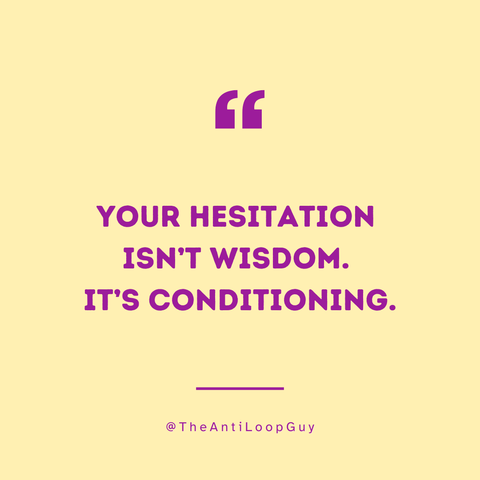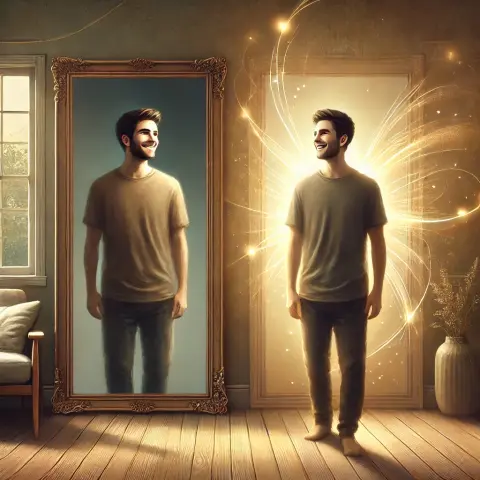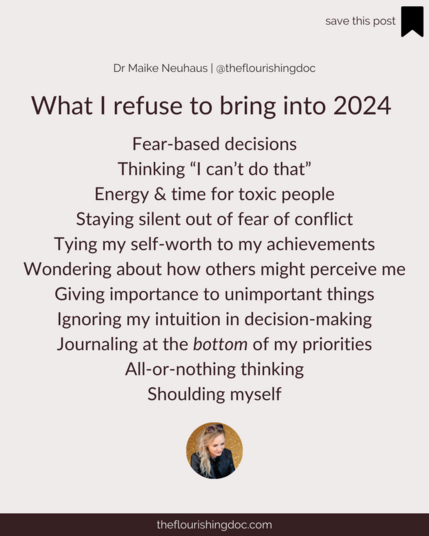Ready for a life change? Start with these powerful self-awareness practices.#SelfAwarenessJourney
#MindfulLiving
#PersonalGrowth
#AwakenYourMind
#SelfDiscovery
#MindfulnessMatters
#SelfImprovement
http://www.mindfulmomentsliving.com/2025/04/daily-self-awareness-practices-for.html
#SelfAwarenessJourney
Hesitation feels safe. That’s why you do it. But real safety is built through action.
The more you move, the more control you have.
#MoveWithConfidence #DecideAndAct #MasterYourMindset #Courage #InnerStrength #SelfAwarenessJourney #EliteMindset #TrustYourself #BuildMomentum #PsychologyOfSuccess
Alone but Authentic: Psychology of the Self Without Witnesses
The Unseen Self: How Private Moments Shape Our Core Identity
The quiet moments when we’re alone—free from societal masks and external judgments—reveal the raw essence of who we are. These unobserved instances, where actions aren’t curated for applause or validation, hold the key to understanding authenticity. Recent studies in psychology and digital behavior suggest that the divide between our public personas and private selves is widening, yet the latter remains the truest reflection of our values, fears, and aspirations. This article explores how unguarded moments shape identity, the science of self-alignment, and why the “unseen self” matters more than ever in a hyperconnected world.
The Psychology of Authenticity: When Actions Align with Values
Defining the Authentic Self
Authenticity isn’t performance; it’s coherence between internal beliefs and external behavior. Research from Frontiers in Psychology reveals a reciprocal relationship between self-control and authenticity: individuals who resist impulsive actions to uphold core values report higher life satisfaction. For example, choosing to exercise despite fatigue or opting for honesty in a conflict often stems from an internal compass rather than external pressure.
“Be.” The large, bold “Be.” serves as an open-ended statement, encouraging self-reflection and personal growth. The list of positive attributes—such as motivated, compassionate, fearless, patient, and welcoming—inspires individuals to embody these qualities in their daily lives.
Be” these qualities—such as dedicated, loyal, creative, and responsible—individuals not only elevate themselves but also positively impact those around them. It’s a call to action to adopt a mindset of continuous improvement, self-awareness, and genuine connection with others. Through small, consistent actions, we shape our character and our experiences. The message emphasizes that the best version of yourself is already within, waiting to be embraced.
The Mirror of Solitude
Introspection—examining thoughts without judgment—is critical to recognizing this alignment. A 2025 meta-analysis highlights that structured self-reflection (e.g., journaling responses to prompts like “Am I living true to my beliefs?”) strengthens emotional clarity and decision-making. Without an audience, we confront uncomfortable truths: Do we recycle because we care about the planet or to signal virtue? Is generosity genuine or transactional?
Digital Identity vs. Private Reality: The Authenticity Gap
The Illusion of Cohesion Online
Modern identity fractures into curated profiles (Instagram highlights), anonymous interactions (Reddit forums), and data shadows (algorithmic profiles). A 2024 study in New Media & Society found that 68% of participants viewed their “datafied self”—tracked by apps and platforms—as a distorted, often unsettling version of their true identity. One respondent noted: “My Spotify Wrapped feels more personal than my LinkedIn bio.”
The Old Mindset: Vanity Metrics
Traditionally, content creators often asked questions like:
- How many likes/followers should I get?
- How often should I post?
- Should I be on TikTok?
- How can I save hours on content creation?
These questions revolve around vanity metrics—numbers that look good on paper but don’t necessarily translate to true engagement or long-term growth. Focusing too much on these metrics can lead to surface-level success without real impact.
The New Mindset: Meaningful Engagement
Shift focus from likes and followers to deeper connections by asking:
Where is my ideal community consuming content? Know which platforms your audience prefers and tailor your content accordingly.
What meaningful engagement am I receiving? Are your audience interactions thoughtful and valuable?
What value is my community taking away from my content? Is your content solving problems or offering insights?
Algorithmic Temptations and Self-Betrayal
Platforms exploit cognitive biases, nudging users toward performative behavior. For instance, fitness apps gamify exercise, turning private health goals into public leaderboards. While this boosts motivation temporarily, it risks divorcing actions from intrinsic intent. Researchers argue that constant visibility pressures erode negative capability—Keats’ term for tolerating uncertainty without “irritable reaching” for external validation.
Cultivating the Unseen Self: Strategies for Coherence
Building Introspective Habits
- Sensory Anchoring: Link introspection to physical cues. A 2025 experiment showed that participants who paired self-reflection with tactile rituals (e.g., holding a smooth stone) reported 40% greater consistency in values-driven decisions.
- Digital Fasting: Designate tech-free hours to disrupt the “perform-restrict” cycle. Users in a 2024 trial who abstained from social media for 30 days exhibited heightened self-trust in anonymous scenarios.
Embracing Productive Paradoxes
Contrary to popular self-help narratives, authenticity isn’t static. A longitudinal study found individuals oscillate between self-doubt and conviction, but those accepting this flux scored higher in resilience. As philosopher John Keats observed, growth occurs in “uncertainties, mysteries, doubts”—not rigid self-definitions.
The Ripple Effect: Why Private Integrity Matters
Micro-Actions, Macro-Impact
Every unseen choice—composting despite inconvenience, resisting a harmful rumor—strengthens neural pathways for ethical behavior. Neuroimaging reveals that consistent value-aligned actions activate the prefrontal cortex, enhancing future self-regulation.
Redefining Success in Hidden Efforts
A 2025 analysis of “quiet leaders” found that those prioritizing private integrity over public recognition built more sustainable teams. Their success hinged on authentic living: decisions rooted in purpose, not applause.
Eye-Opening Reflections: What Our Shadows Reveal
The unseen self is humanity’s litmus test. A society that values unchecked growth over private stewardship faces ecological collapse; individuals prioritizing curated identities risk spiritual depletion. Yet, emerging tools—from AI-driven authenticity checkers to decentralized identity platforms—offer hope. By marrying self-awareness with ethical tech, we might bridge the gap between who we are and who we pretend to be.
As you close this article, ask yourself: What habit would you keep if no one ever found out? The answer may hold the key to your unlived life.
Conquer the Blogosphere: Your Thrilling Odyssey to Greatness
#AuthenticLiving #IntrospectionMatters #QuietLeadership #SelfAwarenessJourney #ShadowSelf #SolitudeStrength
Recognizing Self-Toxicity: 3 Signs to Watch For 👉 Have you ever stopped to wonder if your harshest critic is… you? #Stoicism #SelfAwarenessJourney #InnerPeaceMatters #MentalHealthMatters #HealthyBoundaries #SelfLoveRevolution 👉 https://tinyurl.com/mpv4tzec
The Dark Side of Self-Awareness #SelfAwarenessJourney #StoicWisdom #MindfulnessMatters #LiveInTheMoment #InnerPeace #Stoicism ⏩ https://tinyurl.com/yk28h9x2
Egos dictate the speed, yet avoid discussing how they got there. It always begins with personal reflection. #ReflectionFirst #SelfAwarenessJourney #EgoAndReflection #GrowthThroughReflection
Join us for Peaceful Mind Studio’s workshop on September 29, 2024, from 7:00 PM to 8:30 PM at The Adelphi. Discover inner peace with Terence, an expert in psychotherapy and spiritual healing. For just $30, learn to breathe out chaos, manage stress, and transform reactions into thoughtful responses. Invest in your mental well-being and embrace a more peaceful mind.
#DiscoverInnerPeace #PeacefulMindStudio #MentalWellBeing #RelaxationTechniques #SelfAwarenessJourney
What do YOU refuse to bring into 2024?
Happy New Year, my friend. Thank you for being part of this community 🫶🏼
Dr Maike x
#HappyNewYear2024 #MindfulNewYear #New YearsResolutions #FreshStart2024 #StartingFresh2024 #HealthyMindsets #MindsetShift #MindsetCoach #SelfAwarenessJourney #GettingUnstuck #PositivePsychology #Selfleadership #NewYearNewMe
Embark on a journey to embrace #MindfulnessMatters and #HolisticWellness, carving a path towards a #BalanceLifestyle and an empowering #SelfAwarenessJourney that uplifts every facet of your existence.
Does this resonate with you?
I know I've been there - perhaps a bill I didn't pay straight away that was then resent a few weeks later with a late fee, a toothache I hoped I could just ignore, or a difficult conversation I needed to have (but put off).
What is one specific action you can take today to address one of those small fires in your life?
#SelfAwarenessJourney #CalmYourMind #EmotionalWellbeing #ExpressingFeelings #MindsetShift #EmotionalSupport #HealthyMindset #LifeCoachingTips
As Leaders, we are often used to adapting our style to suit purpose and situation
As such, our unconscious may also wear figurative masks to be the leader who is needed in that moment
However, BE AUTHENTIC!
Never Lose Sight of YOU!
There's no one Youer than You
Your Authenticity will Define Your Leadership and Your Legancy
#LeadershipDevelopment #GrowthMindset #Authenticity #LeadershipStyle #SelfAwarenessJourney #LeadershipCoach #IAmEnough #LeadershipLegacy #BusinessOwner #MentalStrength





